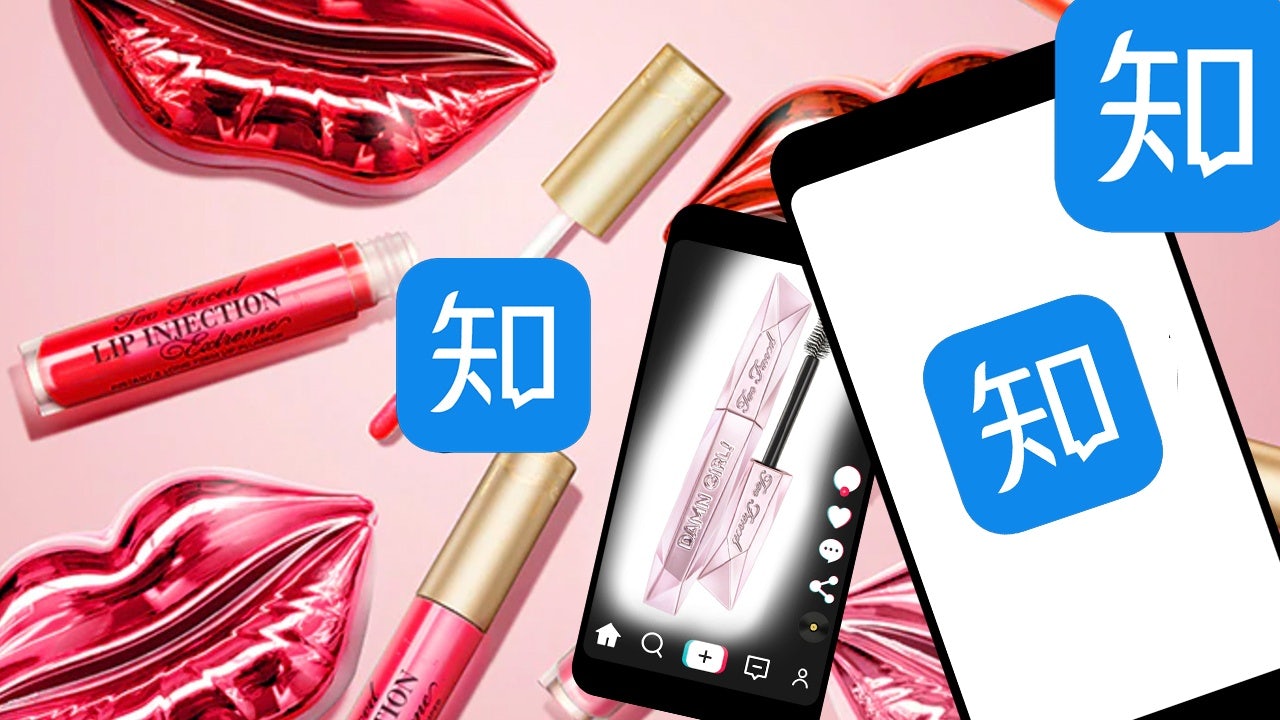When it comes to knowledge about China’s sharing economy, there’s one clear winner: the Q&A platform Zhihu, which was founded in 2011. Zhihu’s features are similar to Quora’s in that it’s an online platform that fosters knowledge-sharing through user, expert, and even brand interactions.
According to TechCrunch, as of January 2019, Zhihu had accumulated 220 million users who had posted over 130 million answers.
Since the platform gives insight into the specific problems and intimacies shoppers encounter during their customer journeys, while also displaying customers' core desires, Zhihu has the potential to become a marketing goldmine — especially for global beauty brands. Medium seems to agree with this logic, stating that the knowledge-sharing platform “is currently a place for cosmetics-lovers to congregate and also acts as a forum for their complaints.”
According to Medium, the evolution of the website through its addition of e-commerce linking and livestreaming helped cement Zhihu’s iconic status as a go-to forum for the beauty community. The business-friendly feature called “Recommend things you like on Zhihu,” added in September 2019, can easily be integrated into a company’s content marketing strategy since it allows users to insert links to products sold on e-commerce websites. It’s a high-value option that also supports search engine optimization.
But enough about how Zhihu is an excellent option for business-to-business beauty marketers; let’s look at how the company’s important new tool could alter its marketing plan:
1. High-quality content that influences the user decision-making process#
Zhihu is known for its in-depth, qualitative analysis and professional research. Therefore, the content engages well-educated users with particular interests. Most users research very specific topics on Zhihu, so brands can find their target audience in a natural context without allocating multi-million dollar marketing budgets or ad campaigns.
Brands can even register for official verified accounts, where they can build their customer base and interact directly with their fans by answering specific questions. This content strategy is not a unilateral relationship focused on one-way broadcasting; it encourages a productive dialogue with a consumer base.
As stated by Medium, if users search for makeup tutorials, they can find that over 2.63 million Zhihu users follow the search term, and there are around 20,000 questions written on the topic. Meanwhile, the term “cosmetics” has 230,000 followers and over 68,000 related questions.
2. A well-educated and wealthy user base#
Technode highlights how the platform’s user base is primarily made up of well-educated and high-earning consumers. Over 80 percent of Zhihu users have a bachelor’s degree or above, according to a 2017 iResearch report. Moreover, 76 percent of users have a high income, and 30 percent of Zhihu users make more than 10,000 RMB a month.
To get ahead in a highly competitive market like China and achieve profitable growth, brands need to address the needs of the middle-market and premium segments. Interestingly enough, these consumer demographics and their growing disposable incomes, mirror Zhihu’s user base. Consequently, brands that want to engage these consumer demographics can incorporate Zhihu in their digital marketing strategies.
3. The rise of the Q&A marketing campaign#
From a cost-cutting perspective, a successful marketing strategy that doesn’t utilize expensive posters, billboards, and ads is a dream come true. And Zhihu offers just this through its Q&A marketing. Essentially, brand ambassadors or employees go onto Zhihu and search for users’ questions to answer, or they post their own discussions to encourage dialogue and consumer interactions.
This no-fuss marketing strategy generates high engagement. For example, there are currently 327 questions related to Johnson & Johnson and 477 questions related to Unilever.
Moreover, topics and issues related to beauty can even generate hype and engage a fanbase. A topic called “What is the difference between cheap cosmetics and big-name cosmetics?” has 36,614 followers and was viewed 36,885,923 times. And the question “Is it worth buying big-name cosmetics?” has 590 followers and was viewed 180,375 times.
Brands like Perfect Diary that have integrated Zhihu into their digital marketing strategies have generated more shareholder value, increased their ROI, and achieved long-term brand growth.
The days when global cosmetic companies had near-monopolies in China have ended. If brands want to stay relevant in this fast-changing marketplace, they need to adapt to disruptions and come up with a quality marketing plan that anticipates the buyer’s needs.

